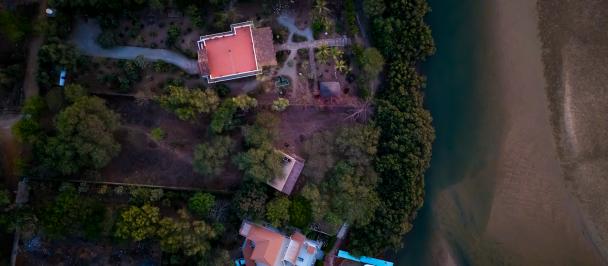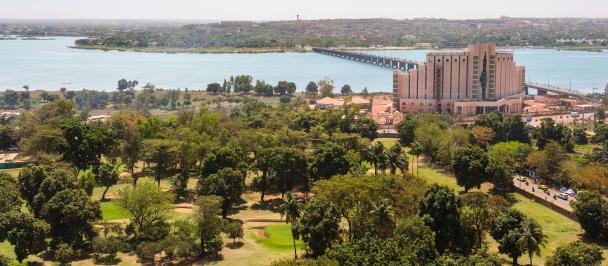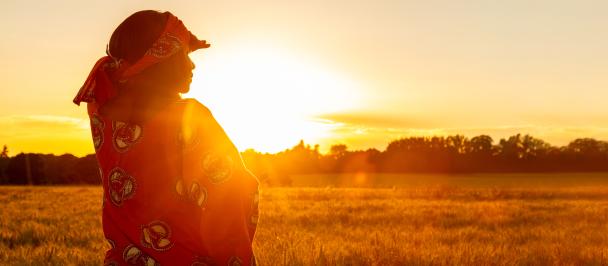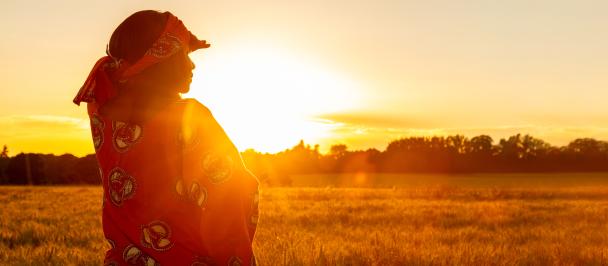Charting a Bold Future
April 21, 2025

As we begin the new year, we find ourselves not at a simple turning of a page, but at the threshold of an important moment in history, one that challenges our resolve and compels us to reimagine a future defined not by division but by hope, resilience, and the relentless pursuit of progress.
Yet, as we take a step forward, we must confront an uncomfortable truth: how can optimism thrive when millions remain displaced, livelihoods and homes are swept away by the waves of conflict, and communities weather the storm of unending war? How does one envision renewal against the backdrop of persistent conflict, poverty, and uncertainty? This is the reality we’ve inherited at the start of the year, where events are shaped by the decisions of a few and felt by so many.
In a year also marked by what many have called “super elections,” nearly half the world’s population engaged in electoral processes. Across 74 countries, 3.7 billion people registered to vote, with 1.7 billion casting ballots. In Africa, approximately 200 million registered voters yielded a turnout of 60.26%, closely mirroring the global average.
From India to the United States, Rwanda to Uruguay, Indonesia to the United Kingdom, many across the world entrusted their futures to leaders they believed could spark reinvention and usher in an era of change. These electoral milestones, though disparate in context, share a common thread: the hope for a democratic choice and the collective will to forge a better future.
However, as we celebrate these democratic affirmations, we are reminded of the enduring specter of instability. The Russia-Ukraine war, now in its third year, continues to underscore the complexities of modern geopolitics. Meanwhile, tensions in Gaza and the uncertain aftermath of the Assad regime’s collapse in Syria leave us in a state of flux.
Closer to home, the landscape is equally complex. In early 2024, leaders in Burkina Faso, Mali, and Niger announced their intention to withdraw from ECOWAS. Far from a mere geopolitical maneuver, this decision sparked a year-long mediation process, a call for the region to assert its distinct identity and craft solutions that reflect its unique challenges and aspirations.
These events are not isolated moments but interconnected signals urging us to reexamine our approach to development.
As an organization born in an era of newfound independence and decolonization, UNDP recognizes that the world today is markedly different from what it once was.Njoya Tikum, Director, UNDP Sub-Regional hub for West and Central Africa and Resident Representative, UNDP Senegal
Rapid shifts in the aid architecture, the gradual erosion of multilateralism, escalating debt crises, and mounting political contestations have reshaped the terrain.
This new era demands that we recognize citizens as drivers of development, foster mutually reinforcing partnerships that value the place of political and socio-economic sovereignty, and commit to long-term investments that prioritize the aspirations of the communities we serve. It calls for a recentering of development, from a top-down to a bottom-up approach that ensures countries and their citizens are at the helm of their own futures.
As we begin developing our renewed corporate vision in the upcoming UNDP Strategic Plan (2026–2029), we do so with a keen awareness of today’s challenges and a steadfast commitment to equip nations to meet their development aspirations, foster inclusive growth, create meaningful employment, nurture entrepreneurship, and build communities that can weather the storms of conflict, climate change, and inequality.
Join us as we chart a bold future together.

 Locations
Locations




